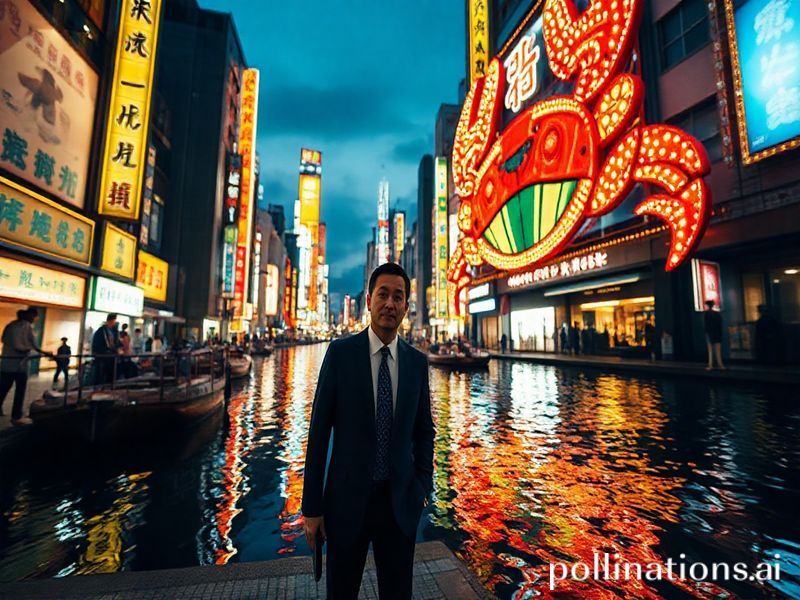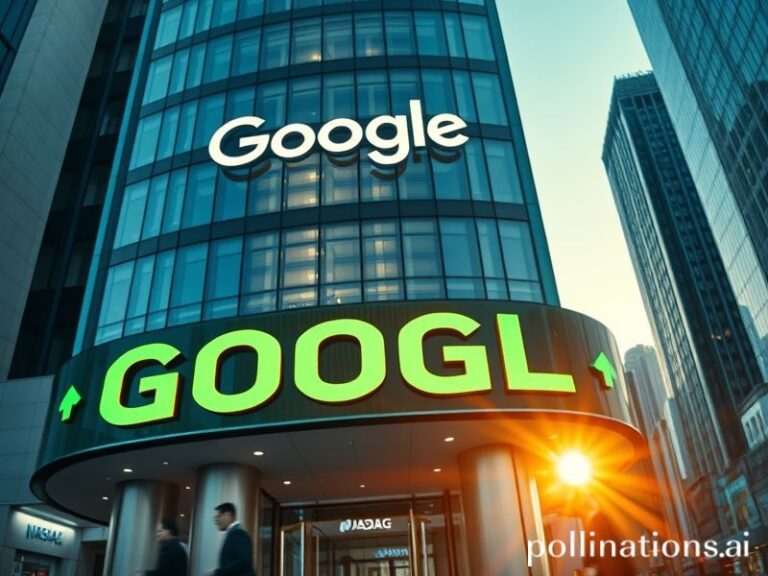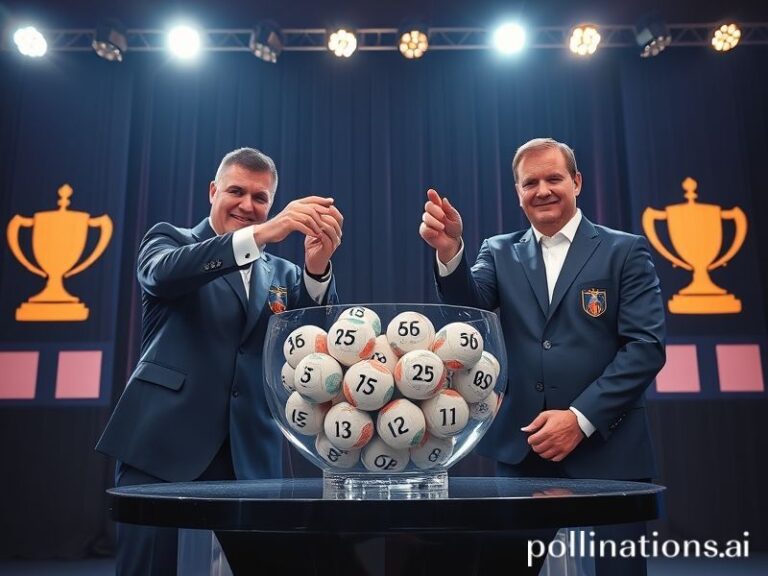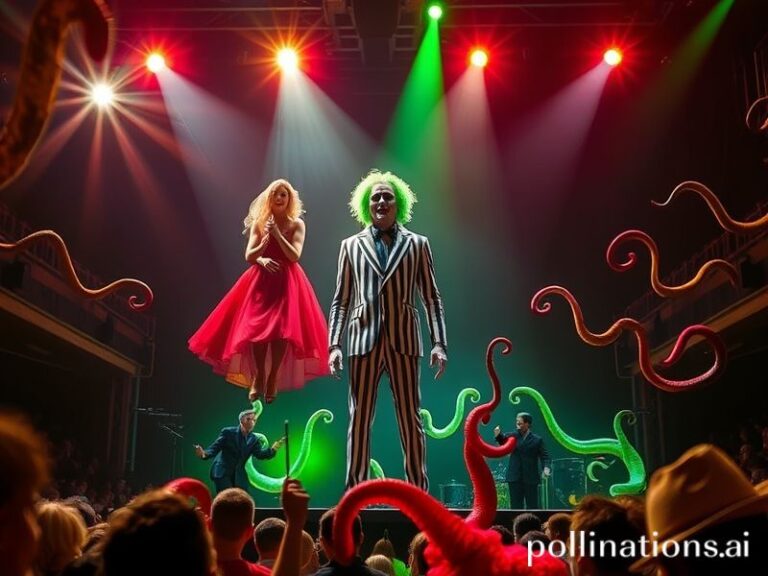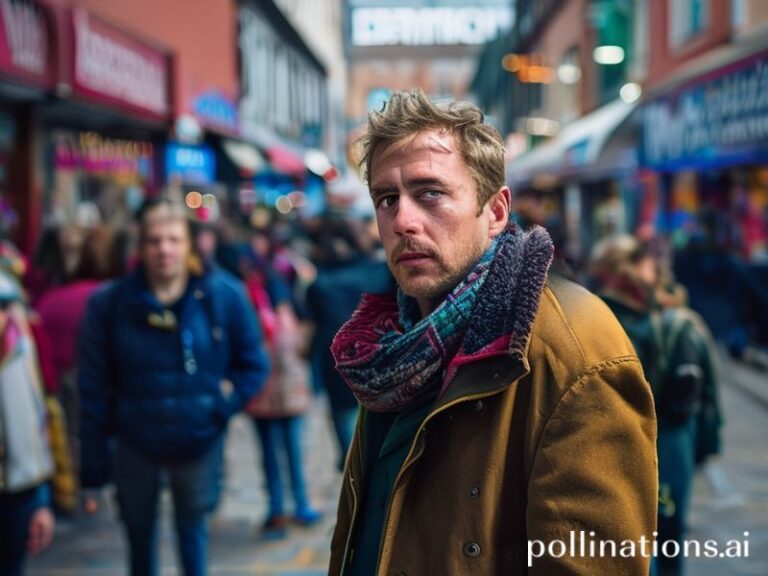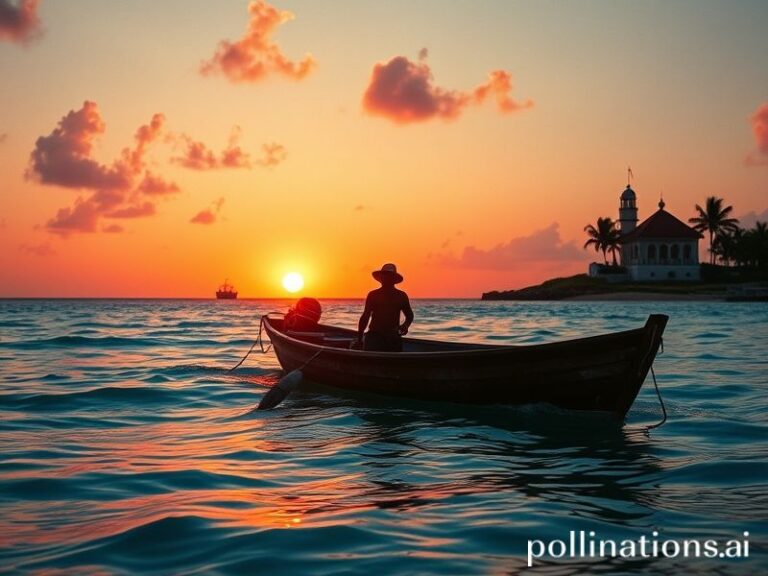osaka
Osaka – Population: 19 million, Sarcasm: Infinite
By Dave’s Locker Foreign Desk (still jet-lagged since 2019)
If Tokyo is the world’s impeccably ironed suit, Osaka is the same suit after it’s slept in a capsule hotel, eaten three sticks of kushikatsu, and decided to pick a fight with the global order. Long dismissed abroad as “that other Japanese city,” Osaka has spent the last decade quietly weaponizing its reputation for street food and stand-up comedy into soft-power warheads. The result? A metropolis that now matters to anyone who buys electronics, eats instant ramen, or wonders why their smart speaker suddenly understands Kansai-ben profanity.
Let’s zoom out. While Washington and Beijing trade tariff love notes, Osaka’s prefectural government hosts the Osaka-Kansai Expo 2025—an event whose mascot, Myaku-Myaku, resembles a sentient blood clot wearing a crown. The expo’s theme is “Designing Future Society for Our Lives,” which is bureaucratic poetry for “please ignore how late we are on carbon targets.” Still, 150 countries have signed up to pitch their version of the future inside inflatable pavilions that look like failed pregnancy tests. If you want a preview of next-generation surveillance capitalism, skip Davos and head straight to Yumeshima Island, where the expo’s “smart city” testbed will track visitor eyeballs to optimize churro placement. Somewhere, Black Mirror writers are filing for unemployment.
Osaka’s global leverage isn’t just architectural cosplay. The city is headquarters to Panasonic, Sharp, and Suntory—corporate titans whose products fill every quarantine care package from Melbourne to Milan. When supply chains coughed in 2021, it wasn’t a Silicon Valley algorithm that saved the world’s Zoom habit; it was a 54-year-old Panasonic plant in Kadoma retooled overnight to pump out webcam sensors. The workers got a commemorative towel and, presumably, lifetime immunity from layoffs—until the towel factory is inevitably outsourced to Vietnam.
Then there’s the culinary black ops. Osaka’s okonomiyaki and takoyaki have colonized food courts from Stockholm to Santiago, but locals know the real power move is convincing tourists that batter fried in lard is a cultural experience worth queuing two hours for. The city’s unofficial motto is “kuidaore”—eat until you bankrupt yourself—which doubles as an economic stimulus plan endorsed by the IMF. After the yen’s recent nosedive, foreign visitors are arriving with empty suitcases and leaving with insulin prescriptions. Somewhere in Brussels, a Eurocrat is drafting an emergency carbohydrate tariff.
Culturally, Osaka exports sarcasm the way Saudi Arabia exports oil. The city’s manzai comedians pioneered rapid-fire double-acts that Netflix is now force-feeding global audiences under the label “Japanese stand-up.” The humor translates poorly—imagine Groucho Marx subtitled by Google—but the underlying message is universal: life is a cosmic prank, so laugh before the punchline kills you. In an age when every other city markets itself as “authentic,” Osaka’s authenticity is aggressively unmarketable: taxi drivers who roast your accent, grandmothers who short-change you for sport, street signs that insult your intelligence. It’s refreshing, like being mugged by hospitality.
Of course, no international dispatch is complete without the obligatory climate gloom. Osaka’s bay is projected to flood by 2070, turning the Dotonbori canal into an open aquarium of neon signs and regret. City planners have responded with inflatable seawalls, an innovation that sounds like a child’s pool toy but cost taxpayers $1.4 billion. If it fails, future historians will excavate a perfectly preserved plastic Glico Running Man and conclude our civilization died doing sponsored cardio.
Yet for all the looming apocalypse, Osaka keeps partying like the hangover is someone else’s problem—which, on a planetary scale, it is. The city’s message to the world is brutally simple: innovate, ingest, and keep the receipts. Because when the last glacier melts and the final semiconductor shorts out, someone will still be on a street corner in Namba flipping octopus balls, muttering that at least the takoyaki survived longer than democracy.
And honestly, that might be the most honest slogan any tourist board has ever accidentally told the truth about.

